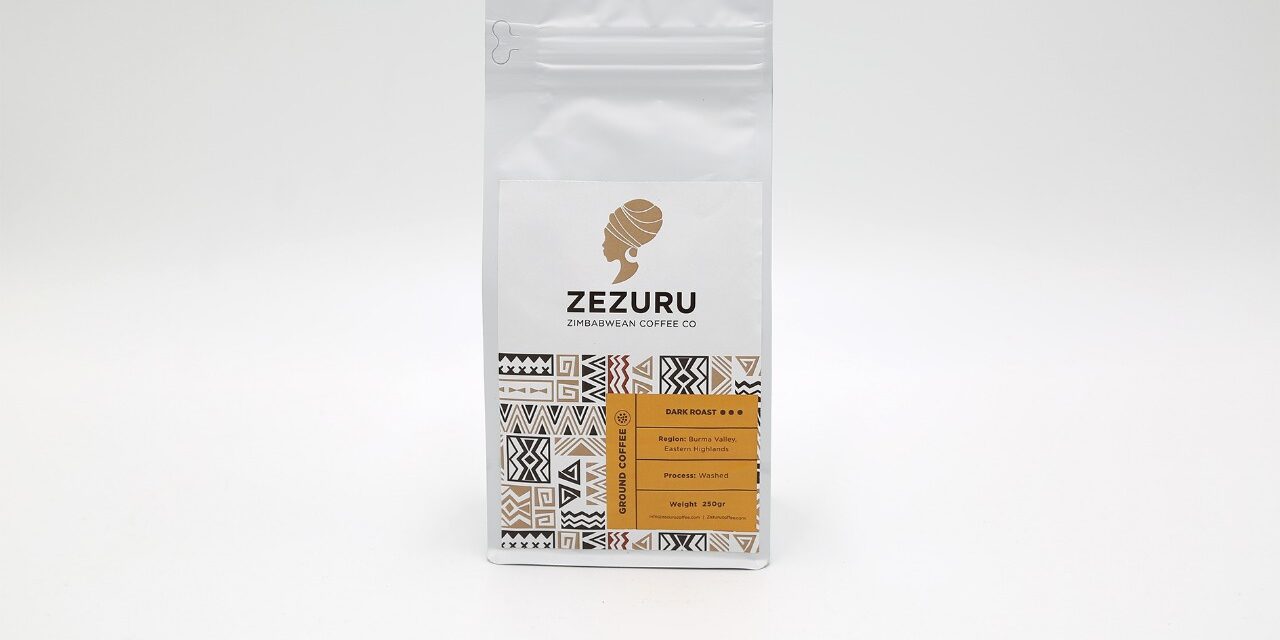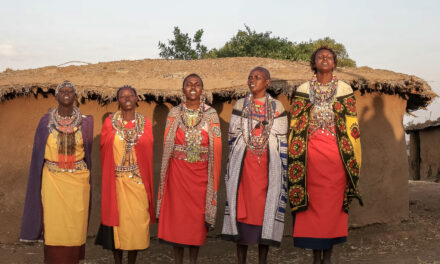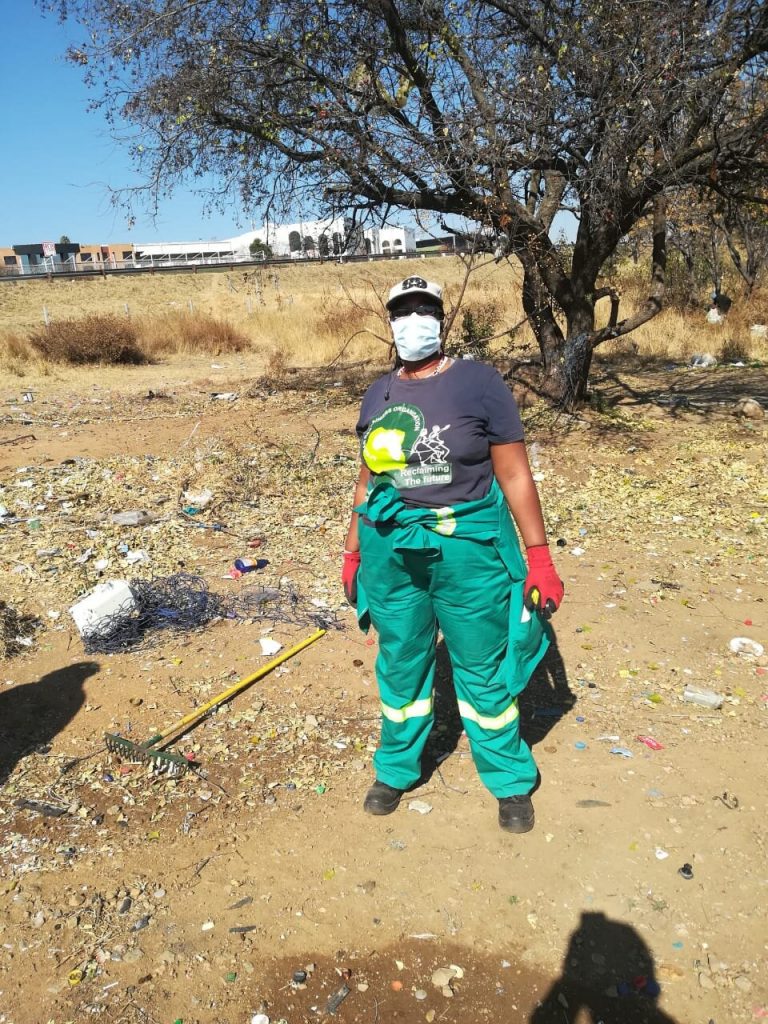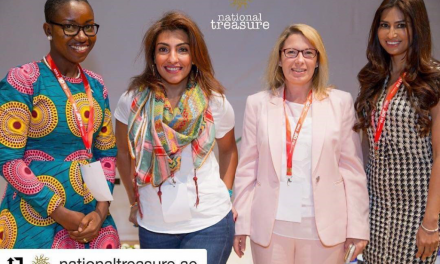Zimbabwe native and solopreneur, Loreen Muyambi’s passion for womxn empowerment and sustainability led her to found the Zezuru Coffee Company. It is an e-commerce initiative that seeks to bridge the gap between coffee farmers and consumers. The name sums it up; it speaks to her ethnic roots whilst embracing and showcasing the potential of Zimbabwe.
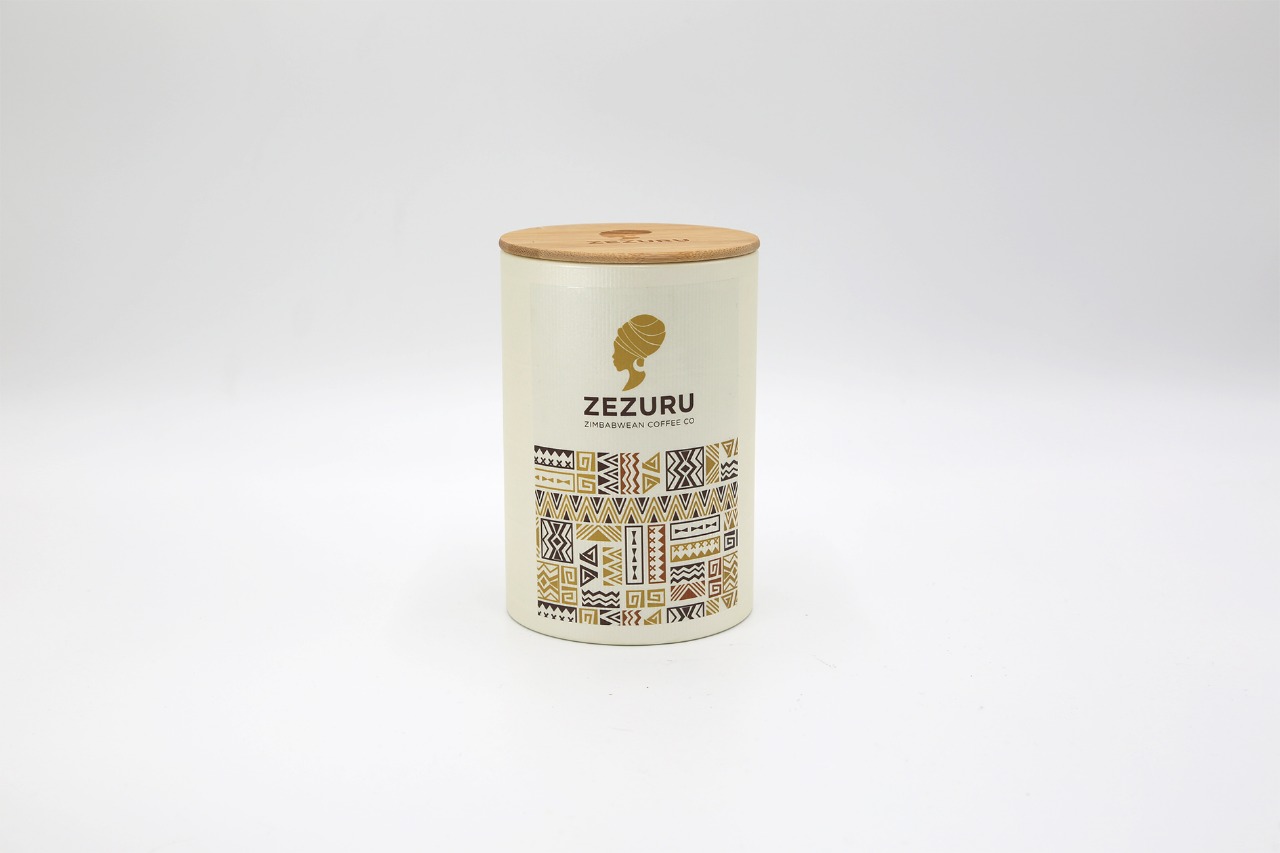
Loreen describes launching a new venture amidst the COVID anxiety as “daunting and all-consuming”. Almost 4 years of research, planning and networking have only strengthened her resolve. Although she describes her introduction to the coffee industry as a “happy accident”, Loreen also highlights her initial disdain for coffee and later being introduced to coffee culture by her social circle. She finds it marries well with her background in Tourism and Business Management. After working a 9 to 5 job and seeking out potential side hustle ventures, the coffee industry resonated the most, particularly because it allows her to be impactful in her home country.
In the past, Zimbabwe proved to be one of Africa’s notable producers of quality coffee with up to 14,706 tonnes from 5,843 hectares of farmland and a third higher than any other African country in 1990 due to the influence of private producers. Since then eco-political instability, droughts and land reform have caused drastic stagnation. This is evident by only 414 tonnes harvested from 1,784 hectares of land in 2016.
Countries such as Ethiopia have now capitalised on the industry however, unbeknownst to most is the optimum coffee growing conditions that Zimbabwe boasts to produce AA coffee beans such as the cool, high-altitude areas of the Eastern Highlands, the subtropical climate and its fertile soils. There has now been a rejuvenation of coffee farming and Zezuru Coffee Co. is contributing by acting as a point of distribution for small scale farmers from Mount Selinda in the Burma Valley.
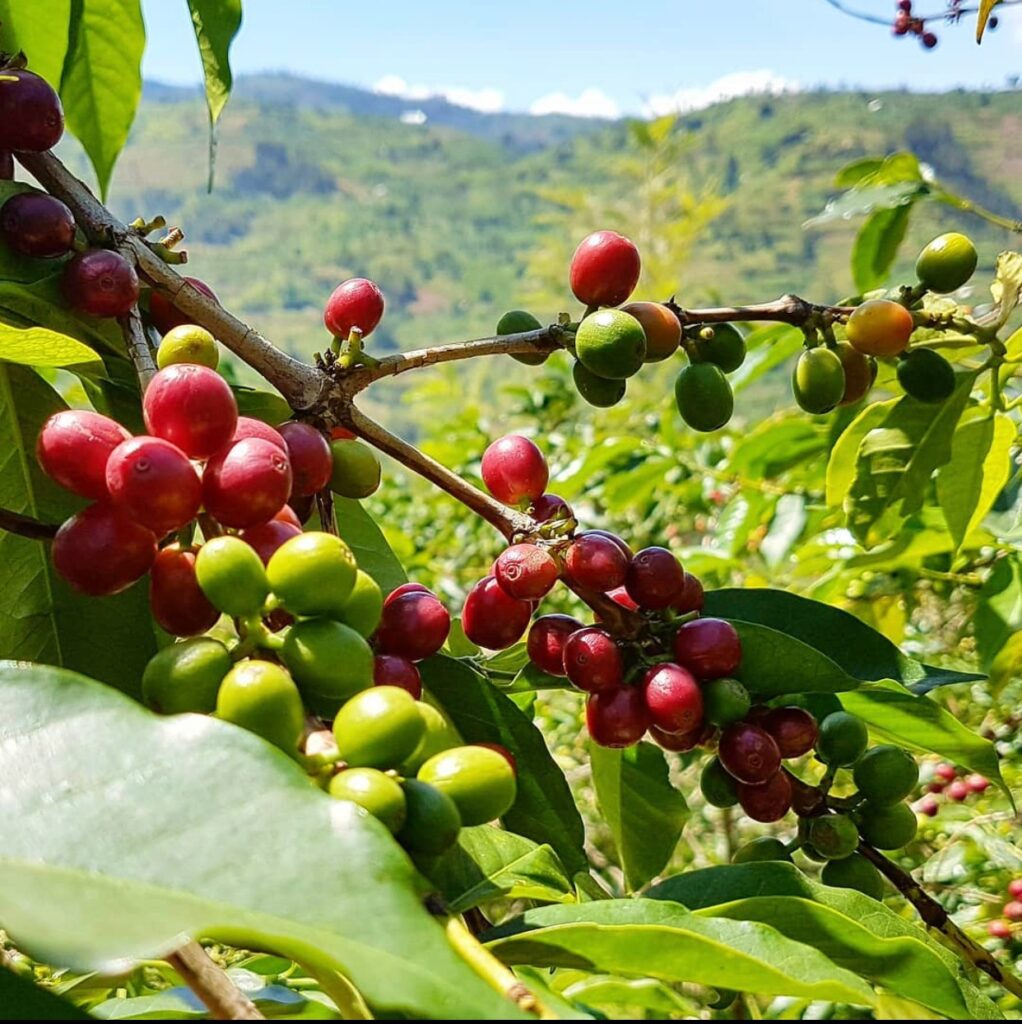
Depending on whether it is a medium or dark roast, their coffee boasts complex notes of orange zest, red wine, dark chocolate and caramel influenced by their wet processing technique. Their 100% Arabica coffee, grown at altitudes of 1260m; is delivered as either whole beans or ground in 250g reusable and biodegradable packaging.
The company accounts for their carbon footprint by incorporating materials such as reused cardboard, bamboo, and cornstarch paper in their stylish canister designs to discourage single-use wastage. To guarantee high quality and ethically sourced products, they have employed a hands-on approach from production to procurement consisting of site visits by infield representatives to the point of actually assisting during the July-September harvest period allowing them to also acquaint themselves with green product processing.
Their incorporation of Earth tones in their product art emulates a very welcoming farm to cup aesthetic whilst the woman’s head wrap in the company logo cleverly symbolizes an aspect of the communal identity that African women share. To date, Zezuru Coffee Co. has managed to build a rapport with 10 farmers, 8 of which are part of the local womxn’s cooperative. Loreen highlights that womxn make up more than 50% of coffee farm labour in the region and whilst they are overworked, they remain underpaid.

This is why womxn empowerment is so integral to their mandate. The company pays above market value for coffee beans in efforts to guarantee fair compensation. Loreen also stresses the exclusion of womxn inland distribution and ownership. Although the country’s laws condemn gender inequality, womxn in rural areas who make the biggest contribution to the Agro-industry are still marginalized and cannot own land without a guarantor such as a husband, brothers or even their sons. It is simply another means of infantilizing womxn, a form of oppression that minimises their capabilities and financial freedom whereas Zezuru Coffee Co. believes in intersectional feminism by supporting the ability of womxn to be self-sustainable, a quality impressed upon Loreen by her own mother.
Exclusion from training courses as well as lack of outreach programs and representation in remote areas have been a major issue for womxn due to the archaic perspective that labour intensive endeavours such as farming are not meant for women. This is why Zezuru Coffee Co. is an avid supporter of the Reviving Origins initiative by Nespresso that has extended agronomy based training and technical support to local communities. Smallholder farmers are often unaware of the potential their lands hold. These farmers need investors who will support their endeavours as well as distributors who will at the least pay market value for the product and it starts with generating exposure. At the same time, it is paramount that farmers are also educated about their rights and fair treatment particularly when dealing with international exportation.
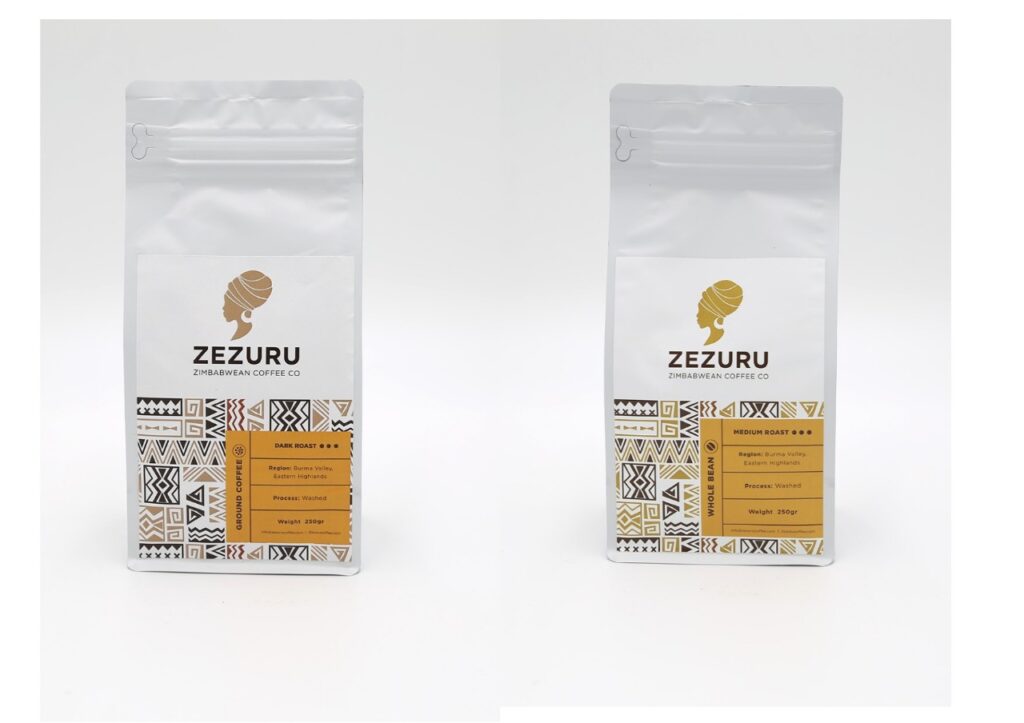
Although containing one of the world’s most ingested drugs, coffee actually appears on international stock markets and is the second most traded commodity after oil. It is a self-sustaining lifestyle and culture all on its own because once you find your brew, you have to feed your craving. Consumers only ever experience the final product and the painstaking work that goes into coffee farming is often overlooked. The ultimate mandate of Zezuru Coffee Co. is to promote Zimbabwean coffee and dispel the notion that Zimbabwe is too far gone to invest in and that its products are inferior.
The quality of their coffee should not be minimized but be marketed on the same level and an international scale. Buying local and supporting small businesses is the cornerstone of sustainable consumption. Their target market is clear; conscious coffee drinkers. When asked what the ultimate brew is, Loreen responds by saying it depends on the day, the weather and even the mood. Her advice for novice coffee drinkers agrees with the consensus that if you enjoy wine, then you’ll love coffee too. Perhaps start with a medium roast. Experiment. Find your brew.

